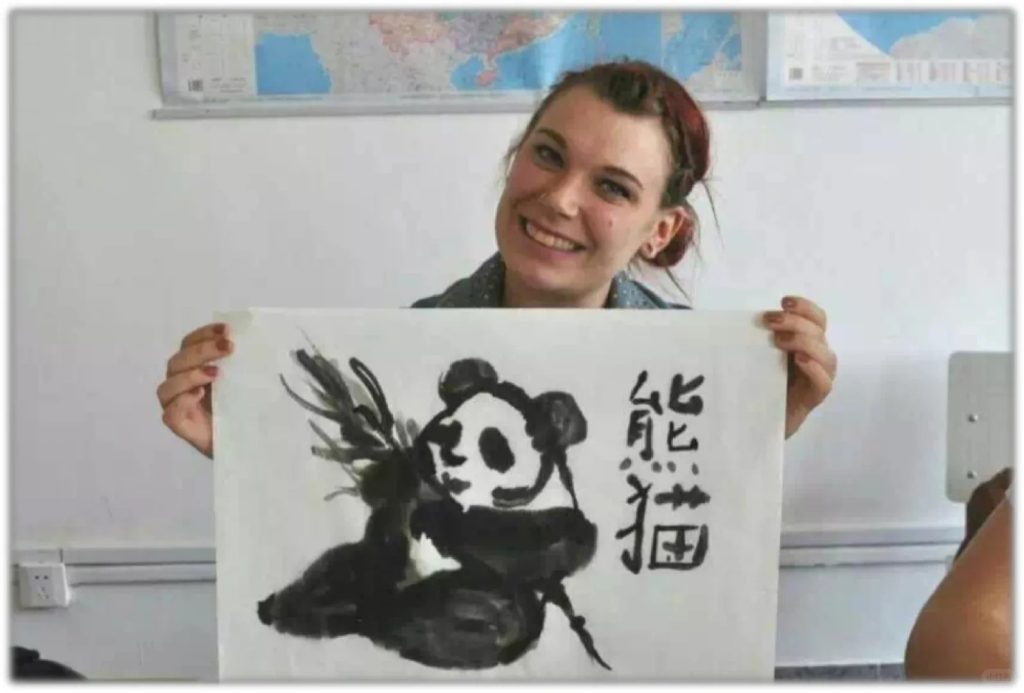如果家庭请一个互惠生非但没帮到小朋友,反而让小朋友变得更焦躁的话,是不是一个很失败的案例?
_1_AupairRen互惠生_来自小红书网页版-769x1024.jpg)
今天我想给你讲一个意大利互惠生的故事。
Beatrice是一个你单看她的个人简历和视频自我介绍会觉得很完美的互惠生人选,金发碧眼加上南意大利外向爱笑性格,巴黎大学在读,意法英三国语言流利都到了C2水平,从小照顾家里两个弟弟,面试的时候也是落落大方,同事夸张地说,看到了莫妮卡贝鲁奇的影子~
B被我们匹配到了深圳的一个家庭,家爸家妈也都有过海归创业小有成就,女儿5岁琴棋书画,似乎一切看上去都是完美的!就像你能看到的互惠生-家庭宣传画一样~每个人拎出来都能做模特的那种。
但是互惠生落地几天家庭就坐不住了,小朋友排斥B,见到B就大喊大叫,拒绝与B沟通,B在餐桌上,小朋友就拒绝上桌子。家庭也很奔溃,我们使出浑身解数调解,B也是一脸委屈,想尽办法讨好小朋友,哭着问我们怎么办。
家庭也说奇怪,明明全家和B面试的时候小朋友说超喜欢这个姐姐,专门画了一本图册盼着姐姐来。怎么是这样。
两周的调解没有任何进展,听家妈的描述,感觉她也撑不住了,当机立断,确认互惠生没问题后,给家庭按照合同办理了退费,给互惠生重新匹配了个广州家庭。B后来在广州度过了愉快的五个月。
为了这个事情,我专门请了我一个心理学的同学,帮我们分析,和家庭一起,主要是希望理清这个事情对小朋友造成的影响,会不会给她带来心理阴影,期间我们和这个深圳家庭一直有联系,还因为这个事情成了好朋友。这个事情也让我们认识的心理学的强大,很多同事从那以后都啃起了心理学的书。

其实,小朋友有时候比我们成人还要敏锐,有时候成人认为的一个玩笑,但可能给孩子带来伤害、甚至是灾难,产生恐惧感和不安全感。在面试互惠生的时候,小朋友意识到自己会有一个“姐姐”或“哥哥”,很开心,但实际上她们并没有这种生活经历。我们中国人传统的好客,特别是互惠生刚到家庭会特别照顾到这个“外人”,在小朋友看来可能会觉得把之前百分百放在自己身上的爱“瓜分”走了,他们就会有自己的想法和意识。接下来就会有自己的处理方式。比如现在会看到有的小朋友跟爸妈说,不要弟弟、妹妹。
当然,这是非常正常的!站在未成年人的立场上,这没有对错。
或许还是我们当时处理经验不足,也没能很好地帮到我的这个家庭客户,以后我们就会建议家庭多和小朋友交流。让小朋友知道这个外国哥哥姐姐来家庭,不是分走你的爱,而是带来更多的爱~
_5_AupairRen互惠生_来自小红书网页版-1024x518.jpg)
如果沟通成为障碍,那么爱也会变得盲目。这也是互惠生这个项目发展的初始目的哦~愿国与国之间更多理解,人与人之间没有隔阂。
What if hosting an au pair not only fails to help your child but actually heightens their anxiety? Let me share the story of Beatrice, an Italian au pair, and the unexpected chaos that unfolded.
At first glance, Beatrice seemed perfect: blonde-haired, blue-eyed, with the warm, outgoing charm typical of Southern Italy. A University of Paris student fluent in Italian, French, and English (all C2 level), she had years of experience caring for her two younger brothers. During interviews, her poise and confidence dazzled us—one colleague even joked she channeled Monica Bellucci’s allure.
We matched her with a Shenzhen host family—returnee entrepreneur parents and their talented 5-year-old daughter, a child prodigy in music, chess, calligraphy, and painting. On paper, it was a match straight out of a brochure: a picture-perfect family and au pair pairing.
But reality struck hard.
Within days, the child rejected Beatrice violently—screaming at the sight of her, refusing to eat at the same table. The family was distraught. We scrambled to mediate while Beatrice, teary-eyed and confused, desperately tried to win the girl over.
The parents were baffled: “During interviews, our daughter adored Beatrice! She even drew a countdown picture book for her arrival. What went wrong?”
Two weeks of mediation failed.
The mother, overwhelmed, made a tough call: we refunded the family per contract and rematched Beatrice to a Guangzhou host family, where she thrived for five happy months.
This experience pushed me to consult a psychology graduate friend. Together, we analyzed the child’s potential trauma, maintaining close contact with the family—even becoming friends. The incident also ignited our team’s passion for psychology; many colleagues began devouring psychology books.
Here’s what we learned:
Children often perceive social dynamics more acutely than adults. A well-meaning joke or gesture—like lavishing attention on the new “outsider”—might unintentionally make a child feel their parents’ love is being “stolen.” Their reaction? Self-protection mode. Think toddlers begging parents not to have siblings.
And that’s normal. From a child’s perspective, there’s no right or wrong—only raw emotional logic.
Our key takeaways for host families:
1️⃣ Prep children thoroughly: Explain that the au pair isn’t a rival but an expander of love.
2️⃣ Balance attention: Avoid overcompensating toward the au pair initially.
Had we known this earlier, we might have guided the Shenzhen family better. Now, we emphasize: Communication bridges gaps. If words fail, even love turns blind.
This aligns with the au pair program’s core purpose: fostering cross-cultural understanding. Let’s build bridges—between nations, and between hearts.